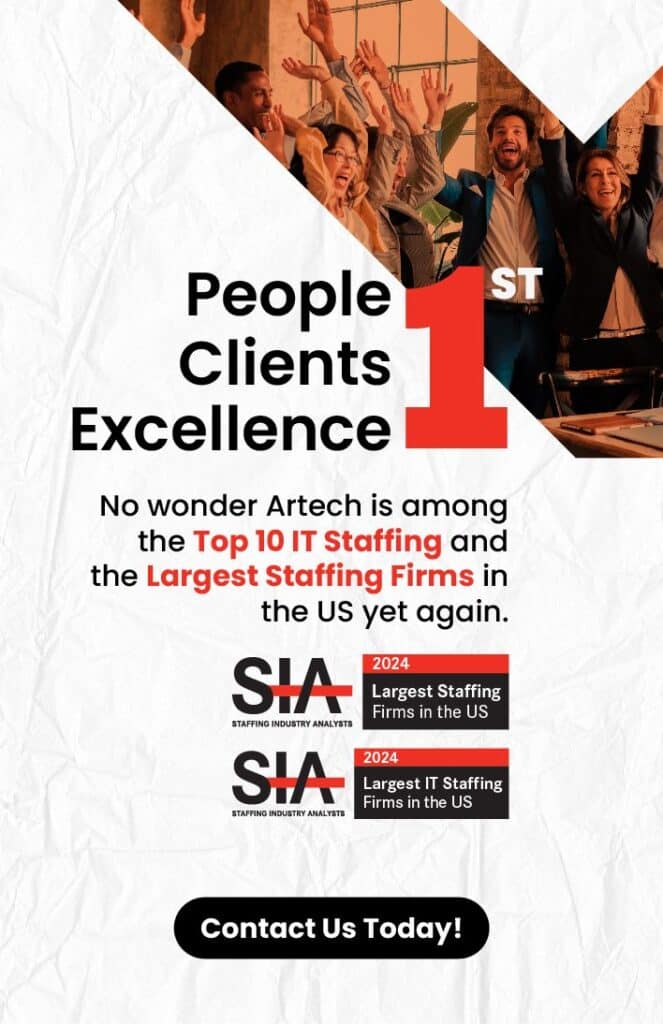
From the moment ChatGPT became publicly accessible, it has dominated conversations across industries. Now, with the rise of other Gen AI tools like Midjourney, Gemini, and Sora, many teams are on the lookout for skilled individuals who can utilize these tools effectively.
Given this momentum, it’s no surprise that the GenAI market is expected to grow at a CAGR of 30.06% from 2023 to 2033.
But the sector promises more than money. It’s a career path with long-term potential for both coders and non-tech roles, such as AI content strategist, prompt engineer, and product manager for AI tools. Many of these AI-related jobs don’t require any coding knowledge.
What skills do you need, then? Critical thinking, communication, domain expertise, and a clear roadmap.
Let’s explore how you can build a successful GenAI career. Whether you’re a writer, designer, project manager, or researcher, this blog will guide you on how to make the shift to AI jobs seamlessly.
Understanding GenAI: What It Is and Why It’s Relevant to Your Career
We’ve all felt the pressure to do more with less time. This is exactly where GenAI makes our jobs easier.
While traditional AI models predict outcomes, GenAI creates value on grassroots levels by helping you draft marketing copy, design logos, script emails, and even compose music.
A great example is Radisson Hotel Group, which used tools like Vertex AI and BigQuery to automate ad creation and localization at scale.
This increased their ad-driven revenue by 22%, improved return on ad spend by 35%, and halved manual work. And their biggest win: more personalized customer experiences.
So why is this so relevant to your career in generative AI?
Because GenAI is no longer limited to data scientists. If you’re a marketer, writer, designer, or project manager, you can explore AI-related jobs that don’t require coding—new opportunities are emerging every day. You’ve already seen these tools in action:
- ChatGPT helps generate content and write code
- Midjourney creates stunning images from text prompts
- Canva, HubSpot, and Notion AI now include GenAI to support everything from campaign design to content summarization
According to McKinsey’s 2024 survey, 71% of organizations now use GenAI in at least one business function. From healthcare and finance to entertainment and retail, companies are applying GenAI to content creation, customer service, marketing, and design.
Non-Technical AI Roles in GenAI: Where Do You Fit
Steve Jobs, the visionary behind Apple’s products, wasn’t an engineer. He didn’t code. He didn’t design chips. But he understood people, and that made all the difference.
If Jobs were exploring a GenAI career transition today, he wouldn’t be buried in machine learning algorithms. Neither should you. There are plenty of AI-related jobs built for thinkers, communicators, designers, and strategists that don’t require any coding.
Here are a few roles where your existing strengths translate directly into impact:
AI Product Manager
Think of this as the translator between engineers and end users. AI Product Managers define what the product should do, prioritize features, and make sure the tool is solving the right problems.
AI Ethics Specialist
AI systems reflect the data they’re trained on, and sometimes that comes with bias, privacy risks, or unintended consequences. Ethics Specialists work to make AI fair, transparent, and responsible. If you’ve got a background in policy, law, social impact, or critical thinking, this role needs your perspective.
AI Trainer/Prompt Designer
AI trainers fine-tune models by giving feedback, correcting outputs, and designing prompts that guide AI systems in real-world scenarios. Writers, educators, editors, and linguists excel in this space.
AI Implementation Specialist
Companies want to use GenAI, but most don’t know where to start. AI Implementation Specialists help organizations roll out AI tools, map workflows, train teams, and connect the tech to business goals.
How to Prepare for a GenAI Role: Skills You Can Start Developing Today
The most important skill you need to learn to break into GenAI is how to reframe what you already bring to the table.
Start by identifying transferable skills. If you’ve managed projects, written content, led teams, analyzed customer feedback, or worked in compliance, you’re already equipped with the foundations many GenAI roles need.
So, if you’re exploring a GenAI career transition, focus on strengthening skills like:
- Project management and workflow mapping
- Content creation and prompt writing
- Stakeholder communication and user research
- Ethical reasoning and bias awareness
Learn GenAI From a Non-Technical Perspective
You don’t need to enroll in an ML bootcamp. Instead, explore accessible learning paths:
- Coursera offers beginner-friendly courses like AI For Everyone by Andrew Ng or AI Product Management by Duke University
- Udemy has affordable options on GenAI use cases in marketing, UX, and business strategy
- edX features free and paid programs covering AI ethics, digital product management, and design thinking
Surround Yourself With The Right Community
Sometimes, the fastest way to grow is by learning from those already in the field.
- Join communities like Women in AI, Data + AI by Google, or NoCodeOps
- Follow AI thinkers and GenAI tool builders on LinkedIn, Twitter, and Substack
- Attend local meetups or global events like The AI Summit, CogX, or NVIDIA GTC
One last tip: Network. This will help you build a localized community that matches your interests and job profiles.
Job Market for Non-Technical GenAI Roles: Opportunities Are Everywhere
Pete Brown, Global Workforce Leader at PwC UK, said in PwC’s 2024 AI Jobs Barometer:
“AI makes human labour more relevant and valuable, opening up new opportunities for people to develop new skills and enter new roles. AI will create new jobs for people that we haven’t yet begun to imagine…Workers who build the skills to harness AI will be more valuable than ever.”
Like Mr. Brown quoted, to succeed in your field, start learning to apply AI models in real-world scenarios.
Job Titles to Keep in Mind
- AI Product Manager
- Customer Experience Lead (AI-focused)
- AI Content Strategist
- AI Ethics & Governance Advisor
- Prompt Designer / AI Trainer
- Implementation Consultant (AI Tools)
- GenAI Marketing Specialist
- Conversational AI Content Lead
Where to Find These Roles
- LinkedIn: Use terms like “Generative AI” + “content,” “ethics,” or “product”
- Indeed: Try combinations like “AI” + “project manager” or “AI trainer”
- Specialized job boards: Explore AIJobs.com, Women in AI, or NoCodeOps for non-technical listings
- Company careers pages: Keep an eye on AI-forward companies like HubSpot, Notion, Canva, or Salesforce
Overcoming Challenges in Your GenAI Career Transition
Many professionals trying to break into AI-related jobs without coding experience suffer from impostor syndrome.
But remember, GenAI is a tool. Anyone can learn GenAI. And the skills you already have are precisely what this technology needs to thrive in the real world.
How to Stay Up-to-Date Without Getting Overwhelmed
Slow and steady wins the race. Try these habits:
- Follow thought leaders and communities on LinkedIn, YouTube, or Substack
- Subscribe to newsletters like The Rundown AI, Ben’s Bites, or Import AI
- Set aside 15 minutes a week to explore a new GenAI tool or use case
- Pick one role, like an AI Product Manager or an AI Ethics Advisor, and map the core skills
- Try hands-on practice: Experiment with ChatGPT, explore prompt design, or write AI-enhanced content
GenAI Careers are Within Reach: Here’s How to Get Started
If you’ve been thinking about a GenAI career transition but doubting whether you belong in this field, here’s the truth: you do.
Yes, it might feel unfamiliar at first. But you don’t need to have it all figured out.
Start with the skills you already have, take small steps to stay current, and lean into communities where learning happens in real time.
And if you’re ready to explore technical paths as well, we’ve got something for you. Read our latest blog on How to Become a Generative AI Developer to discover the essential skills and steps to break into this transformative field.
This content is crafted with care by Artech Staff Authors. While it reflects our commitment to quality and accuracy, please note that it is not authored by industry experts. We aim to offer valuable and engaging information, and for more specialized or technical advice, we recommend consulting with professionals in the relevant field. If you have any concerns or require further assistance, please contact us at support@artech.com. Thank you for trusting Artech as your source of informative content.








